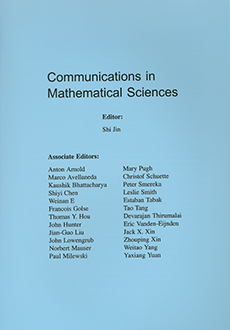Abstract
In their classical 1937 paper, Kolmogorov, Petrovsky and Piskunov proved that for a particular class of reaction-diffusion equations on the real line the solution of the initial value problem with the initial data in the form of a unit step propagates at long times with constant velocity equal to that of a certain special traveling wave solution. This type of a propagation result has since been established for a number of general classes of reaction-diffusion-advection problems in cylinders. Here we show that in problems without advection or in the presence of transverse advection by a potential flow these results do not rely on the specifics of the problem. Instead, they are a consequence of the fact that the equation considered is a gradient flow in an exponentially weighted L2-space generated by a certain functional, when the dynamics is considered in the reference frame moving with constant velocity along the cylinder axis. We show that independently of the details of the problem only three propagation scenarios are possible in the above context: no propagation, a “pulled” front, or a “pushed” front. The choice of the scenario is completely characterized via a minimization problem.
Citation
C. B. Muratov. M. Novaga. "Front propagation in infinite cylinders. I. A variational approach." Commun. Math. Sci. 6 (4) 799 - 826, December 2008.
Information





